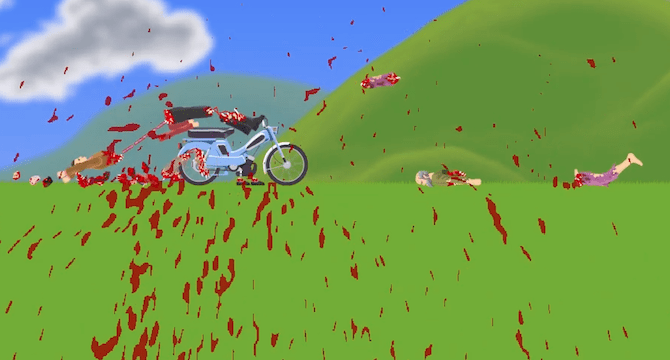The violent video game Happy Wheels has been a cult hit on the PC for years and now the mobile version is proving to be even more popular in Denmark.
Since its release on August 19, the game in which a player can be impaled, crushed, shot, mutilated and impaled has vaulted into the Danish top 25.
Violence not a problem
Anne Mette Thorhauge, an associate professor at the Department of Media, Cognition and Communication at the University of Copenhagen, said there is no reason to worry if your children or friends are crazy about the game.
“We are exposed to violence via newspapers, television and books, and also in our own reality – for example at school,” Thorhauge told Metroxpress.
“An interest in violent movies and computer games may well be a healthy sign and a way to deal with the violence in our reality.”
One 14-year-old player said: “It doesn’t bother me because no-one actually dies. It’s only fun because it is on a screen.”
More blood on the way
Happy Wheels has been a cash cow for the game’s American developer Jim Bonacci. The game itself is free, but shows advertising between levels, and there is a paid version that removes the ads.
Bonacci promises that more violence is on the way to the mobile version. In the PC version, gamers can play (and die a horrible death) as a father with his young son. That feature is not yet available but in the mobile version.
“Seeing the ‘ irresponsible father ‘and his son explode while they are being crushed under a car was not the first impression I wanted people to have of the game,” said Bonacci on his blog.
“Now that it is on the market, I think it’s safe for us to slowly introduce the rest of the game.”












